Wellness Point 36 : grow your microbiome
[columns] [span8]Ask me the question "Which of the 52 Wellness Points are most important to pay attention to?" and I can not give you a straight answer. Mostly, this is because we each have different epigenetic* signalling activated at any given time, generated by our life experience and chosen environment, so a priority for me may not be the same for you.
epigenetic : literally "above the gene," refers to the link between your genes and the environment your genes are in, or have been in.
In saying that, every single one of the 52 Wellness Points are important to every single living human. Adding or levelling-up any of the points will produce beneficial responses to overall wellness in even the most self-defined healthy person. It really is a recipe for life long wellness, and the best thing is that it costs nothing, and is 100% self available.
The Rhythm of Wellness course is the story of how cutting edge science integrates with nature's rhythm. As human beings, our species evolved with nature as the backdrop to our adaptations. Humans are not separate from nature. Nature's rhythms refer also to human rhythms, and they are defined by the relationship (articulated as the distance between two things) between being human and the environment we choose to live in.
There is perhaps no cutting edge science making more waves in mainstream health culture than the study of the human microbiome. It's exciting to see an area of research being addressed and instigated so quickly from laboratory to the family kitchen, and perhaps a sign of the times that we are about to come full circle with 20th Century Germ Theory.
Wellness Point #36 : grow your microbiome
According to Tim Spector, a forerunner in the research on ancestral microbiota (studying hunter gatherer populations, specifically the Hadza of Africa), scientists are coming to terms with the idea that the microbiome is more than a large group (1:1 to 2:1 ratio with our own cells - that's trillions of them) of Good Guys, Bad Guys and Spectators, and that they are actually more akin to an organ of the human body.
As more research is published, it's almost safe to assume that individual human microbiomes communicate to one another via chemical signalling to enhance or decrease human wellness, dependant on the signals they receive from the environment the human is choosing. More interesting still, is that microbiota appear to be conversing with nature to adapt and strengthen our physiology due to what is found in the surroundings.
These poor little dudes have had a tough job for the last few decades while modern people have been waging war on germs. Researchers now accept that some bacteria have been made entirely extinct due to chemical usage and modern industrial processes.
Bacteria are much older, evolutionarily speaking than hominids and the theory is sound to suggest that humans would not have adapted in our current form without them. It's commonly accepted in health culture that we require proliferative bacteria, protozoa etc. to benefit our digestion. Over the next few years its likely that research will show our connection to our microbiota is critical to keeping all physiological processes well.
Is it time to show your microbiome some love?
You've probably seen sauerkraut in your local health food store. It has been toted as the new wonder drug and with good reason. Fermented foods are bringing strains of bacteria back to our digestive tracts that were all but wiped out by the 80s and 90s Western white diet. By white I'm referring to all those highly processed and super white / clean "foods" we've been told were good for us : processed bread, white sugar, pasteurised milk, loads of pasta…. The things that aren't really food.
While we were shoving white junk into our stomachs, the poor little Good Guys were struggling to keep things in rhythm. I'm not stating that modern people have increased chronic illness because our microbiomes are struggling, but I am stating that our shonky microbiomes are a result of the lifestyle and environmental choices that have contributed to increased chronic disease **
** There is just too much to unpack in this article for a correct representation of my Wellness viewpoint of this topic. It's explained in-depth in my Rhythm of Wellness course, which integrates this information clearly.
In a diet that is deficient in both fibre and variety, it's impossible for the human microbiome to flourish. Hunter Gatherers (who live as humans did for a really long time - 300k years - before the advent of processed foods and industry) eat 600 species of food in a year. If you counted what you eat in a year, how many do you get?
So what I really desire for you to hear is : : :
Your Sauerkraut and bone broth are wonderful - if you never ate things like that before, they are providing new variety that your microbiome are currently loving. AND, after you've eaten them for a few weeks, they are not new anymore***. So what's next? Variety, variety, variety.
*** I'm not suggesting to stop your sauerkraut and bone broth after a few weeks! They are two foods with a multitude of benefits when eaten long term. Keep eating them AND add something else. And then add something else. And something else....
I don't love cooking, but I do love growing. Fermenting foods feels more like growing food than cooking to me, and it's so easy! The act of placing varied fruits or vegetables into bottles and letting nature's local yeast make love with the ingredients to foster change, is an ever exciting experiment. I highly recommend starting with a Ginger Bug recipe, and quickly graduating to Mead made from local foraged wild fruits. Kombucha is simple too, even though I mostly use mine as vinegar these days****. In this way, you are activating variety while enjoying the symbiotic rhythm of your landscape.
**** I'm not talking about the kombucha you buy from the soft drink fridge. Your microbiome, just like your body, wants to make love with bacteria and yeasts from your local environment, not a commercial kitchen somewhere far away.
In medieval times, adults and children drank small beer instead of water, because the water was so dirty and unsafe. Small beer is another name for naturally fermented drinks, and is without any alcoholic content. Drinking fermented small beers is a fabulous way to increase nourishing variety while being in relationship with your environment. It's likely that if you're drinking municipal water from the tap, small beer is still a better option.
This site has a great run down on traditional Ale/Small Beer making, and offers a recipe for you to try it yourself. One of the topics we discuss often in my Wellness program is to focus on Nature's provisions over supplements of any kind. Food, including wild fermented food is Nature's provision. The probiotic supplements currently pushed by the health food industry are not the answer to your microbiome issues, ***** and home grown ferments have the added benefit of adding super-nutrition to your daily rhythm. Our medieval ancestors knew that the best way to consume grains was to ferment them into a Small Beer.
***** Research shows the bacteria introduced to your gut by probiotic supplements has a short lifespan. They are dead within two-three weeks after taking the supplement. Of course, this dead bacteria provides different benefits to the complex system in your gut. It is important to realise however that probioitics are only a preparative resource for a healthy gut, they are not enough to build a healthy gut on their own. Also, not all probiotics are created equally. You are much better off to get your probiotic fix in a symbiotic form along with prebiotics aka : fermented food such as sauerkraut or small beer.
[/span8][span4]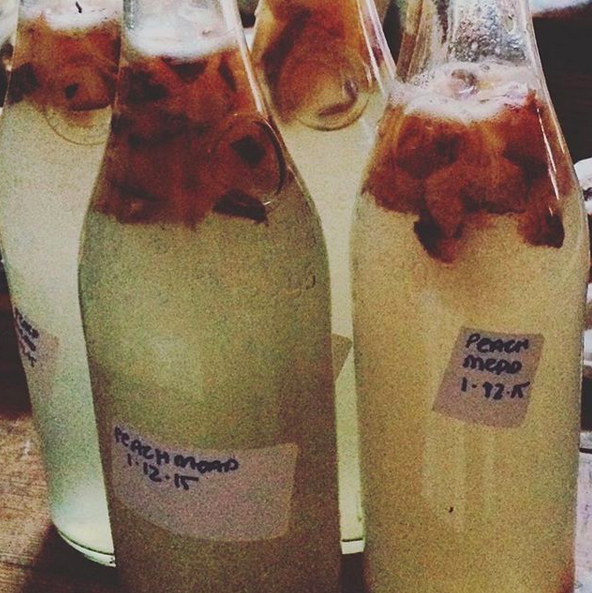
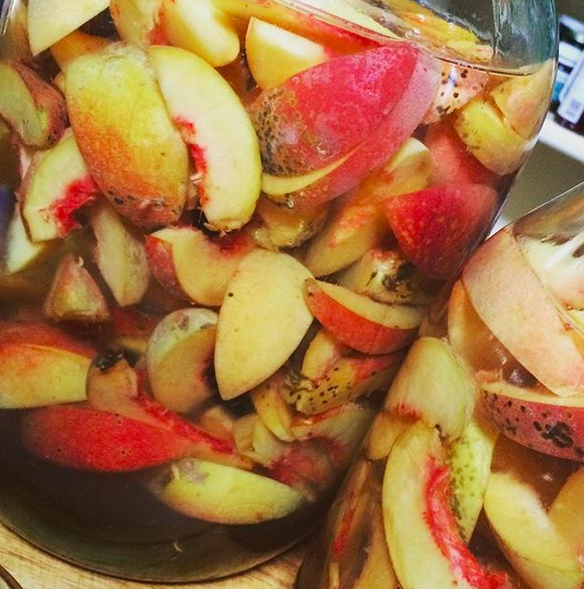
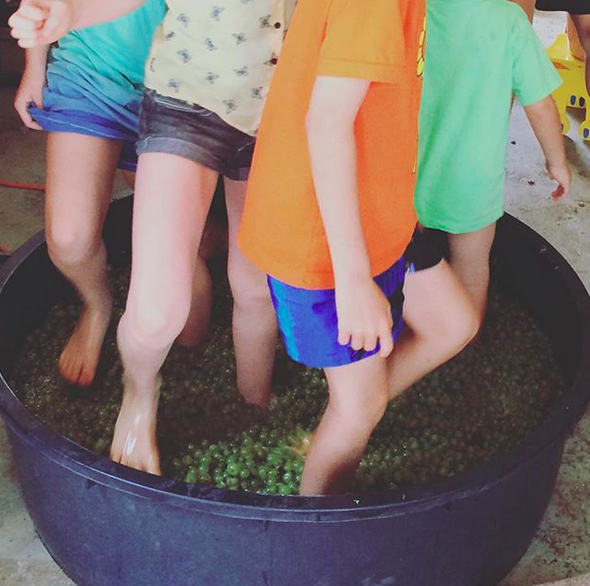
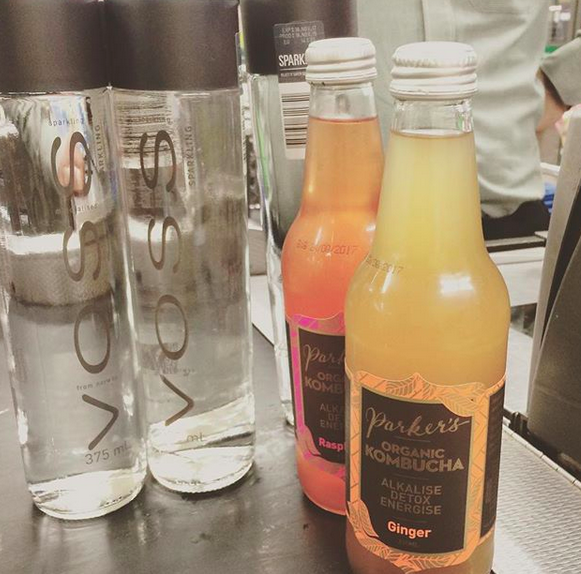
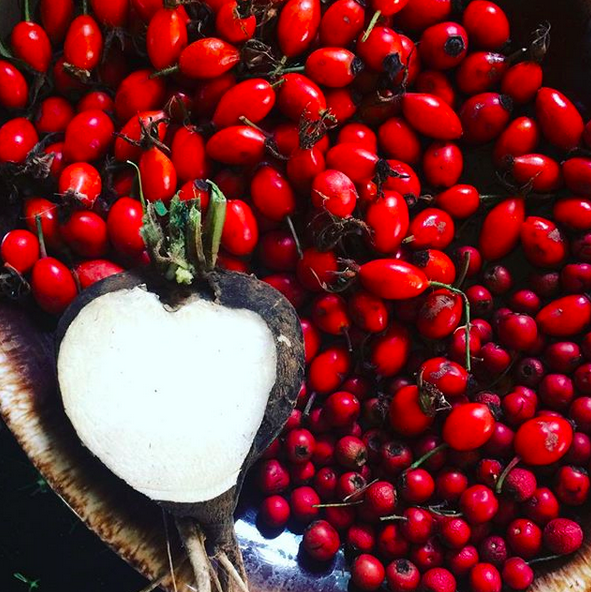
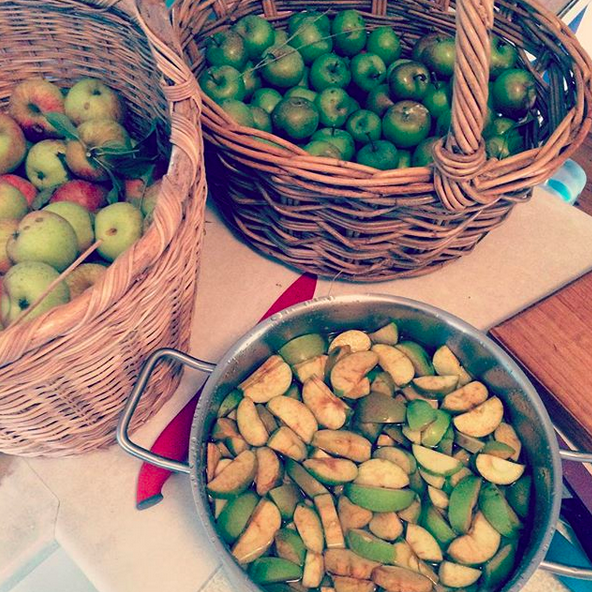 [/span4][/columns]
[/span4][/columns]
And then you also need to know :::
Your microbiota, just like your sleep cycles, and your emotional health, and even your pet cat require more than a specific diet to be well.
When I combined all my research and experience, I came up with 52 points that contribute equally to wellness, supported by scientific research. Growing your microbiome requires symbiotic foods, like sauerkraut AND THEN to keep your microbiome well for always, it requires all 51 other points as well. Sunshine, fresh air and good water are as beneficial to your microbiome as fermented food - actually I'd even be so sacrilegious to say - they are even more important than anything you eat… but that's a subject for another day.
The Rhythm of Wellness Course is a magnum opus of my research that eventuated in healing chronic illness and changed my family's life forever. It combines cutting edge science with nature's wisdom to provide you with a map for life-long wellness. It doesn't include supplements or diets or any other health fad. It's all about nature, and how humans have always lived as an active part in/of it.
This piece is connected to the small article in the October detail for the Lunation Annual Planner about Oktober Fest. Look out for more Wellness Point articles in the months to come.
If you're interested in starting your own Self Crafted Wellness journey, check out the Self Crafted Wellness Journal, a workbook to help you formulate a Wellness plan that works for you, guided by the 52 points for Wellness, and the Rhythm of Life. Dive deepOr if you'd like more 1:1 assistance with your Wellness and all the thoughts that go with it, perhaps You are a good match for my Coaching and Cousnelling Program. Take a look and call me if you want more info 0482955340

